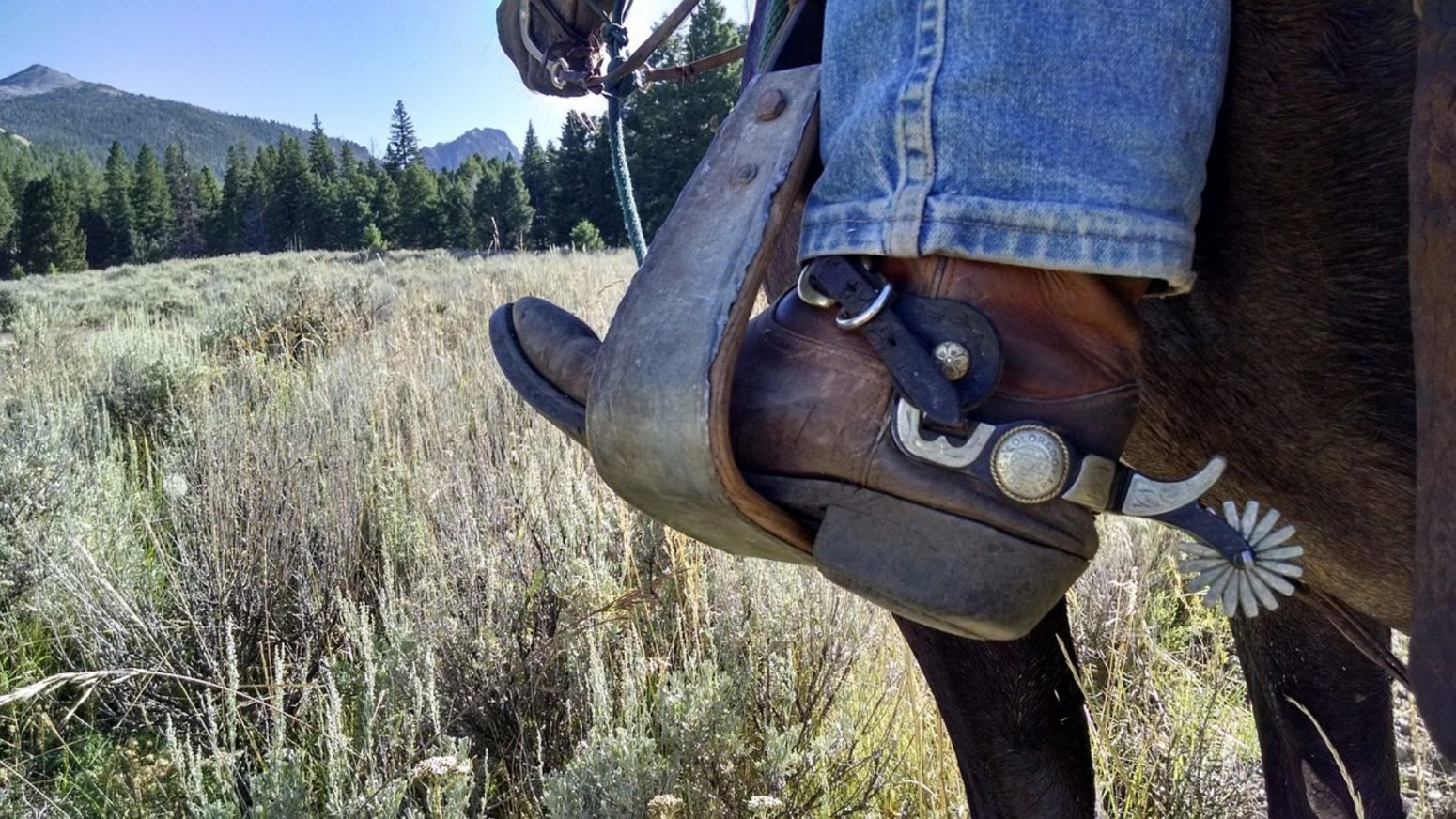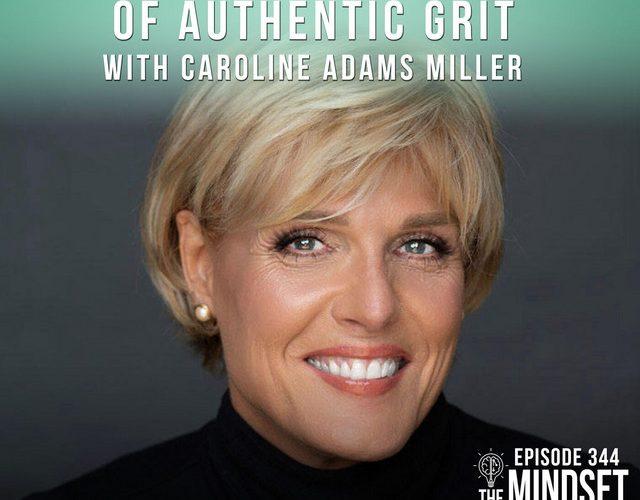September 24, 2017
By Caroline Adams Miller, MAPP
At this point, you’ve probably heard of “grit.”
Angela Duckworth defines grit as the perseverance and passion for long-term goals.
But not all types of grit are good.
One of the first questions I get asked when I speak to audiences about grit is:
“If someone like Adolf Hitler fits the definition of grit, how could it be a good thing?”
The moment people understand how passion, hard work, and dedication to a goal fit into a traditional description of grit, they usually think of someone they know who fits the definition in a good way, like Gandhi or someone in their extended family who showed them early that work pays off. But it isn’t long before they get a puzzled look and ask about Hitler.
Undoubtedly, this has crossed your mind, too. You might know someone who has modeled change and passion as they’ve made a positive difference in other people’s lives, but you can probably also think of someone who became obsessed with achieving a certain kind of success, and whose drive or actions did more harm than good, and possibly didn’t even bring them joy. You might even know people who have exhibited both good and bad sides of grit at different times, which might lead to confusion about how to know when you are using it well and when you need to be careful not to head in the wrong direction.
In order to make it easier to understand the differences between good grit and bad grit, I’ve divided up the types of positive authentic grit that I see in the world, along with examples to help flesh out their significance and meaning. I will explain why each type is important and how we can benefit from identifying, studying, and emulating its finest features. Next week, I will tackle the grit approaches that aren’t quite as positive, along with warnings about how to avoid taking the strength of follow-through and turning it into a weapon you can use against yourself or others.
But first we’ll talk about something I call “Authentic Grit.”
Authentic Grit
Authentic Grit is the passionate pursuit of hard goals that awes and inspires others to become better people, flourish emotionally, take positive risks and live their best lives.
Authentically gritty people have:
- Positive relationships with others
- High hope
- Humility
- Self-confidence
- Giving (not taking) mindset
- Appropriate focus
- Stubbornness
- Learned from failure
- Authenticity
- A growth-mindset
We’ll talk more about Authentic Grit in a future post. For now, you’ll need to know that all of the types of Good Grit, described below, have all the elements of Authentic Grit.
Good Grit
There are four types of what I define as “Good Grit” — Mt. Rushmore, Mt. Olympus, Celebrity and Ordinary Grit.
Mt. Rushmore grit
When I evaluated a number of great figures from history and pondered how to best describe their brand of grit, I discovered that they share some important characteristics that set them apart in noteworthy ways. These men and women are the ones who were lit up by a cause they felt passionate about and that reflected universally admired values like fairness, justice, and love. In their journey to accomplish something significant and historic, they overcame numerous obstacles—some life-threatening—but never backed down for long because of fear, despair, or loss. Their behavior was also unique for its unusual display of dignity and self-regulation. They controlled their reactions to hate, envy, or aggression directed at them from others, and in so doing, became leaders who changed the course of history and attracted followers who admired and embraced their cause, and helped change the world for the better.
I call these men and women possessors of “Mt. Rushmore grit” because like the granite landmark in the Black Hills of South Dakota that features the faces of four of the greatest American presidents—George Washington, Abraham Lincoln, Theodore Roosevelt, and Thomas Jefferson—their deeds changed the course of history and have become enshrined in the hearts and minds of generations of grateful men and women.
They include people like Jesus of Nazareth, Mahatma Gandhi, Martin Luther King Jr., Harriet Tubman, Susan B. Anthony, and Bill Wilson, the cofounder of Alcoholics Anonymous. All of them opposed actions that represented the worst of man’s behavior—hatred, colonialism, racism, sexism, and alcoholism, to name just a few—and put their own reputation, health, and safety at risk to do so. Their ability to hold fast to their ideals and goals in spite of hardship, condemnation, and abuse is why we live in a freer, safer, and better world today. Where would we all be if they hadn’t had this particular brand of authentic grit?
We can see Mt. Rushmore grit in our daily media as well. For example, Malala Yousafzai, a Pakistani advocate for female education and the youngest Nobel Prize winner ever, was shot in the face in 2012 by the Taliban because of her belief that girls deserve the right to be educated. Her articulateness, miraculous survival, poise, and subsequent refusal to abandon her cause out of fear, despite death threats, is one of the most inspiring examples of courage and grace under fire I’ve ever encountered—and I’ve seen many men and women grow respectfully silent in person and in the media when her name comes up. If you’ve heard her story, it has left its fingerprints on your soul, too.
Mt. Olympus grit
 Another type of authentic grit includes athletic figures who have risen to extraordinary heights, and in so doing, raised the standards for others to play bigger, outside their physical comfort zone, and to push their bodies and minds to a level that is truly awesome. While some of them are well known, many are not—but all have overcome various setbacks and challenges on the way to either making history in their sport or exhibiting a courage and class that made simply showing up to compete a gritty triumph.
Another type of authentic grit includes athletic figures who have risen to extraordinary heights, and in so doing, raised the standards for others to play bigger, outside their physical comfort zone, and to push their bodies and minds to a level that is truly awesome. While some of them are well known, many are not—but all have overcome various setbacks and challenges on the way to either making history in their sport or exhibiting a courage and class that made simply showing up to compete a gritty triumph.
Golfer Casey Martin, fits this designation, as do tennis player Serena Williams, swimmer Michael Phelps (post-alcoholism rehab), and Sir Edmund Hillary and Tenzing Norgay, the first people to reach the summit of Mount Everest. Some lesser-knowns with this type of grit have impacted their sport quietly and courageously, like Afghani runner Tahmina Kohistani, who refused to stop training in her war-torn country in spite of widespread denigration and heckling for being a “bad Muslim woman” who ought to “get behind the men.” Without much support, training facilities, and other helpful resources, she made the cut for the 2012 London Olympics and ran a best time there, finishing thirty-first out of thirty-two runners. When interviewed after her race, she tearfully shared her story with reporters, noting that although she hadn’t won a medal, she was proud of the journey she’d taken, saying, “Being here is more important than a gold medal.” And in 2016, the Olympics featured for the first time a squad of refugee athletes who had fled war-torn countries like Syria and who had persevered in their training in spite of indescribable hardship. Their passion and fortitude represent Mt. Olympus grit at its very best.
Time and time again, people with authentic grit demonstrate that winning a trophy or medal isn’t what motivates them. What lights them up and gives them a purpose worth waking up for is seeing how far they can go as they attempt to redefine their own limits, or those of their sport, as in the case of Mt. Olympus grit. In so doing, they often provoke others to ponder how they, too, can be more resilient, brave, and gutsy, inspiring them to go out and test their mental and physical mettle in new ways that often change their lives for the better.
Celebrity grit
In 2008, at Harvard University’s commencement, J.K. Rowling gave a powerful speech about failure, friendship, and risk-taking, which went viral almost immediately because of its message of how refusing to give up on a dream—in this case, writing about a magical boy named Harry Potter—changed her life, and the lives of millions of others. Like so many parents, I watched all three of my children devour every single Harry Potter book in epic, solitary sessions that they repeated over and over. My daughter even carried the whole series with her to college, turning to them during periods of stress for comfort and familiarity.
 How many other mothers like me are grateful to J.K. Rowling for persisting in lonely writing sessions despite being a broke, young, divorced mother? How many of us can thank Rowling for making our kids fall in love with reading? How many sad youngsters found solace in her fantastical world of Hogwarts, a world that kept them from focusing on whatever was troubling them? And how many new authors have been inspired by Rowling’s personal story of resilience, starting in humble circumstances but refusing to quit on her dream?
How many other mothers like me are grateful to J.K. Rowling for persisting in lonely writing sessions despite being a broke, young, divorced mother? How many of us can thank Rowling for making our kids fall in love with reading? How many sad youngsters found solace in her fantastical world of Hogwarts, a world that kept them from focusing on whatever was troubling them? And how many new authors have been inspired by Rowling’s personal story of resilience, starting in humble circumstances but refusing to quit on her dream?
Another common denominator of authentic grit is that the people who possess it never diminish the people they touch; they almost universally cause them instead to become happier or better in some way.
Rowling’s books are just a small example of what celebrity grit can unleash. Her persistence in writing, along with the values espoused in the Harry Potter books, has been credited with “saving reading” and raising money for enslaved populations around the world.
J.K. Rowling, Oprah Winfrey, Dick Van Dyke, and Spanx founder Sara Blakely all qualify for my celebrity grit designation because they are in the public eye making a difference in the lives of others, and not because they set out to do so, but because their personal stories exemplify authentic grit.
Dick Van Dyke, for example, who enjoyed a successful career on the stage and screen, went public with his alcoholism battle in the 1970s, noting that he had always thought he’d be a minister but had found another way to bring hope to others. It’s said that with celebrity status comes the burden of being a role model; when a celebrity’s actions are rich with authentic grit, we are all doubly blessed.
Ordinary grit
 Finally, we take a look at the largest group of people with authentic grit: the unsung heroes who wake up every day and strive to succeed at goals that require persistence and dedication, but that also lack obvious external rewards or attention and acclaim from others. These men and women selflessly take care of disabled children while holding down full-time jobs, tirelessly advocate for the less fortunate as public defenders and social workers despite low pay and depressing outcomes, or learn how to read in their sixties so that they can earn a long-desired high school degree. Although I call it ordinary grit, it is anything but ordinary when you look at what these people do and how they impact their families, communities, and the organizations they are part of.
Finally, we take a look at the largest group of people with authentic grit: the unsung heroes who wake up every day and strive to succeed at goals that require persistence and dedication, but that also lack obvious external rewards or attention and acclaim from others. These men and women selflessly take care of disabled children while holding down full-time jobs, tirelessly advocate for the less fortunate as public defenders and social workers despite low pay and depressing outcomes, or learn how to read in their sixties so that they can earn a long-desired high school degree. Although I call it ordinary grit, it is anything but ordinary when you look at what these people do and how they impact their families, communities, and the organizations they are part of.
James Robertson is one such man. For eleven years, he walked twenty-one miles round-trip to his job outside Detroit, where he had a perfect attendance record. In a world filled with many in a new generation who are known to refuse long shifts, early start times, or weekend work, Robertson’s daily trudge, due to his insufficient means to buy a car and the lack of adequate public transportation, came to the public’s attention through a newspaper article. Within days of its publication, a GoFundMe page had raised $350,000 and the offer of a free car, as well as an outpouring of admiration from around the world. Camera crews documented his shock and tearful acceptance of the car, when he said, “I wish my parents could see me now.”
Stories of ordinary grit go viral because we long to see paragons of goodness in a world where the motto for most news is “If it bleeds, it leads,” and the view we’re given is that of a narcissistic and angry world.
When we have an opportunity to witness heroic behavior paired with hard work, humility, and kindness, we are awed and want to share it with others. Research has found that this type of awe has the impact of releasing bonding chemicals in our bodies that enhance our pro-social behavior. So when we hear about a James Roberson, or a man who devotes his days to fixing broken bicycles for underprivileged children, it’s medicine for the soul—and we can’t get enough of it.
Part 2: Bad Grit …to be continued next week…
This post includes excerpts from Caroline Adams Miller’s book Getting Grit.
Click here to download the introduction and first chapter of Getting Grit.
Photo credits (in order of appearance): skeeze on Pixabay // Caleb Minear, chuttersnap, Frida Bredesen, Bruno Nascimento on Unsplash





